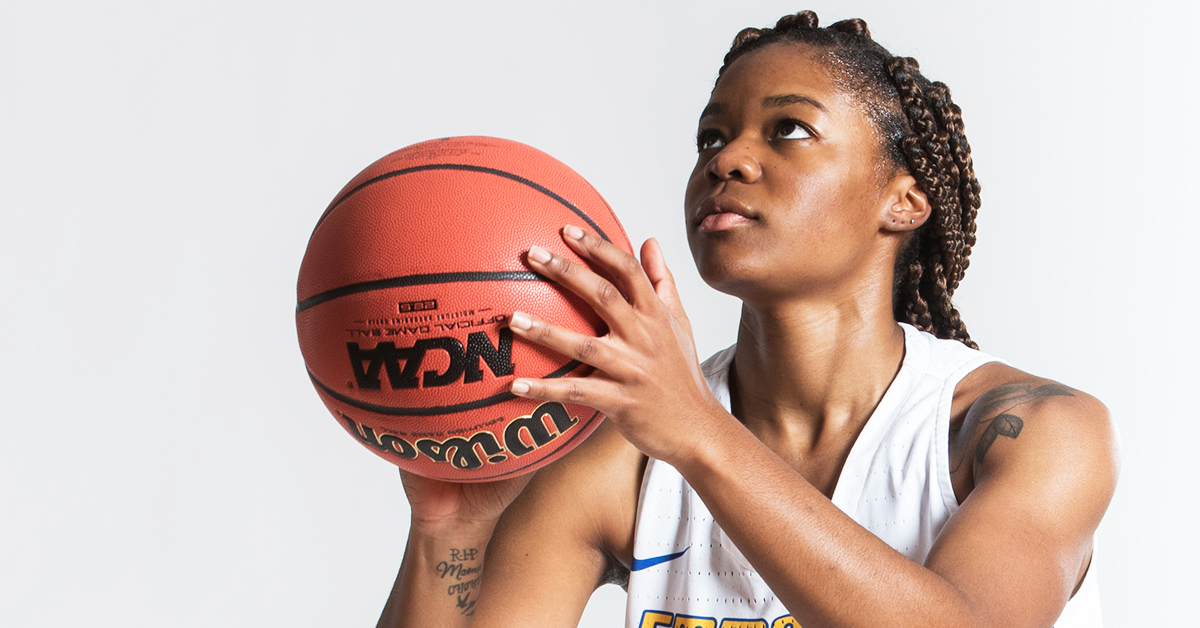Harness Your Athletic Strengths: Critical Skills that Apply to College Life
As a high-school athlete, you’ve spent countless hours in the gym, on the field, or running around a track. You’ve committed to your craft. Yet, you are also someone who wears multiple hats beyond your chosen playing field.
As you look to transition to becoming a college athlete, perhaps you find yourself wondering what it will be like trying to balance all aspects of college life between academics, athletics, social and more. You may not realize it, but as a student-athlete you’ve been fortunate to have developed many critical life skills over the years. In fact, just being in a team setting has prepared you for college life and beyond.
Here’s five ways your experience as a student-athlete has already provided you a leg up on the competition:
Time Management
From a young age, you have been going from school to practice, to a game, to a meet. It’s never ending and the seasons blur from one to the next. During down time, you also coordinated doing homework, having a family and social life, enjoying a day off in nature and fitting in other important things to ensure a quality balance.
Time management is a key part of succeeding as a college student. Even if you don’t feel you’ve mastered the skill, worry not. Most colleges and university have various departments and resources available to assist you. Connect with your academic resource center for time management strategies or reach out to your academic advisor, who may have tips on how to make the college transition.
Strong Sense of Self-Motivation
It’s never been just a shiny medal or trophy that you’ve been after. Rather, you’ve been motivated by the desire to beat the competition, crush your current personal best, and prove to yourself your hard work wasn’t for nothing. This comes in handy when applying for jobs or standing out in the classroom setting.
At the college level, let that self-motivation run wild by seeking out opportunities early and often that will help you succeed after your playing career has ended. Connect with your college’s career center to learn whether they offer opportunities for first-year students to begin career preparation. Reach out to faculty to learn more about research opportunities on campus. Keep that motivation – and a keen eye toward your future – as you navigate your college years.
Natural Goal-Setter
No high school athlete is ready for the Olympics, the World Series, the Grand Prix, the Tour de France, or the Super Bowl. The athletes who get to the world-class events do so by setting realistic, achievable goals, then working hard to attain those goals one step at a time. For high-performing athletes, the ability to set and achieve goals tends to come naturally. College students that set goals during their enrollment graduate at a higher rate, earn competitive salaries when they enter the workforce and challenge their peers to better themselves and the organization.
A great way to set goals for yourself during your freshman year in college is to establish your four-year academic plan. Working side-by-side with your academic advisor, you’ll map out your college academic experience and ensure you’re on the path to all the experiences you desire. Envision yourself studying abroad? Or pursuing an internship at a world-class organization? Develop your roadmap early on to ensure it’s all possible.
Ability to Manage Stress
Stress has the power to debilitate just about anyone, but athletes have to deal with it on the daily. The stress of losing, the stress of injury, the stress of embarrassing themselves, their coaches, their families — the list never ends. Athletes are unique in that they have the ability to manage their stress. Whether that ability comes naturally or has been learned over many years, athletes are able to compartmentalize their worries to focus on the task at hand. This skill comes in handy during midterms and finals periods but it’s great to have in your back pocket whenever you need it.
With that said, don’t hesitate to reach out to professionals on campus to further assist you when stress levels are running high. Health and wellness professionals are available to offer you tips on staying healthy and successful in college in additional to offering creative strategies to manage stress.
Willingness to Take Criticism
No athlete makes it to the top on their own. Top-tier athletes understand the importance of remaining coachable — that is, taking criticism at every opportunity and learning from it.On the field or in the classroom, feedback is important and helps the end product.
Playing a collegiate sport is certainly a big commitment, but whether you believe it or not, you’re probably more prepared than you think. Not just for trying to make the college squad, but for college life in general.
Only a small percentage of high school athletes continue to play in college, but the lessons and skills you’ve learned through your involvement in sport will follow you well beyond your degree.


 About Insights
About Insights
 About Emmanuel
About Emmanuel